Two spots on the Oscars shortlist of 15 last year for African and Middle East countries represented a modest improvement on recent years — but entries this year are down. Screen surveys a region that has made halting progress.
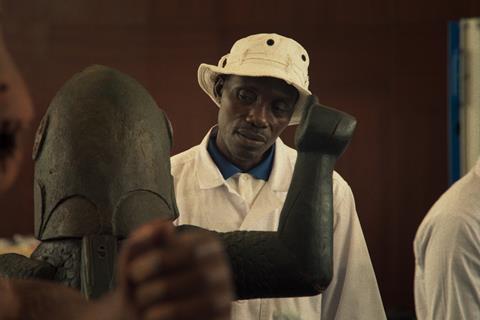
Africa
After 11 entries for last year’s award — just one down on the record of 12 from 2021 — African submissions for the 2025 international feature Oscar have dropped to nine. It is now four years since Kaouther Ben Hania’s The Man Who Sold His Skin made it all the way to awards night for Tunisia — the only title to do so since 2015. For comparison, over the past nine years, there have been 29 European nominees, 11 from Asia-Pacific and four from the Americas region.
The paucity of African titles at Oscar’s international feature shortlist stage suggests the problem starts early in the process, especially for sub-Saharan Africa. Ben Hania’s Four Daughters for Tunisia and Asmae El Moudir’s The Mother Of All Lies for Morocco both made it to the shortlist of 15 films last time around, but Maryam Touzani’s The Blue Caftan for Morocco was the only African selection for 2023, and there were none for 2022. No Black director has ever won the Academy’s international feature film award.
Golden tickets
Mati Diop’s documentary Dahomey, representing Senegal, offers the best chance of breaking that barrier. The Berlinale Golden Bear winner dramatises the return of 26 royal treasures from France to the Kingdom of Dahomey (in modern-day Benin). Backing from Mubi in territories including North America and UK-Ireland should guarantee it visibility. Two previous Golden Bear winners have gone on to take the international feature Oscar: Vittorio de Sica’s The Garden Of The Finzi-Continis for Italy in 1972, and Asghar Farhadi’s A Separation — also the winner of Bafta’s equivalent award — for Iran in 2012. It is French director Diop’s second time representing Senegal, after Atlantics made the shortlist for 2020 but missed out on a nomination.
Heritage also offers opportunity from Morocco, which has selected French-Moroccan filmmaker Nabil Ayouch for the sixth time with Everybody Loves Touda. Launched in the Cannes Premiere strand this year, the film centres on a poet and singer raising her deaf-mute son in a small village, where she dreams of being a performer in Casablanca. Ayouch co-wrote the script with his partner Touzani, after he produced The Blue Caftan. None of Ayouch’s previous entries have made the nomination stage — nor have any of Morocco’s 19 submissions to date. The film has production and co-production roots in France, Morocco, Belgium, Denmark, Norway and the Netherlands — a wide base that may assist it with international voters. It is sold by France’s mk2 Films, which has Oscar pedigree in recent years with Anatomy Of A Fall and The Worst Person In The World.
Egypt will hope box-office success can boost its chances with awards voters, having submitted Hani Khalifa’s Flight 404. Produced by Egyptian heavyweight Mohamed Hefzy for Film Clinic, the drama stars Mona Zaki as a woman who must come up with a large sum of money days before she is meant to embark on the Muslim pilgrimage of Hajj. It scored more than 450,000 admissions across the MENA region following a January release, setting a record for a female-led film in Egypt and taking $4m in Saudi Arabia. Despite 37 previous entries, Egypt has never received a nomination or shortlist spot in this category.
One of the few African countries to have won this award, with Gavin Hood’s Tsotsi in 2006, South Africa returns with Muneera Sallies’ Old Righteous Blues. The filmmaker’s second feature centres on a young man who must unite two warring Christmas choirs to heal tensions within his community. The film is set in the Bo-Kaap neighbourhood of Cape Town, on the slopes of the iconic Signal Hill.
Director Ngang Romanus represents Cameroon for the second time in this category with Kismet, about a Christian woman who defies societal norms by falling in love with a Muslim man. After its first submission in 1981, Cameroon made no entries from 1982-2016, but has now submitted six times since then including Romanus’s Hidden Dreams for 2022.
Social norms are also under the microscope elsewhere on the continent. In Nada Mezni Hafaiedh’s Tunisian entry Take My Breath, a 23-year-old seamstress runs away from home when their intersex identity is exposed. Following a world premiere at Warsaw Film Festival in 2023, the film has won awards including best film and actress (for Amina Ben Ismail) at Alexandria Mediterranean Film Festival, and is sold by the Middle East’s MAD Solutions. Ben Hania’s aforementioned titles are Tunisia’s only Oscar recognition to date from 10 previous entries.
Nigeria makes just its third qualifying submission, with adventure title Mai Martaba (which translates as ‘Your Highness’) selected by the 15-member Oscar committee. Using the country’s most widely spoken language Hausa, it sees rival forces clash for the throne of the ancient kingdom of Jallaba. It is the feature debut of Nigerian filmmaker Prince Daniel Aboki.
In Kenyan entry Nawi, a young girl growing up in a rural community discovers her father is selling her to an older man for a herd of goats, and chooses to fight this tradition and reclaim her future. With dialogue in Swahili, the film debuted in its homeland at the end of August.
Algeria turns to a debut for its 2025 submission with Chakib Taleb-Bendiab’s psychological thriller Algiers, following a psychiatrist and police inspector trying to solve the mystery of a kidnapped girl. It won best film at Rhode Island International Film Festival in the US, and is looking to become the country’s first winner in this category since its inaugural entry, Costa-Gavras’s Z, in 1970.
Middle East
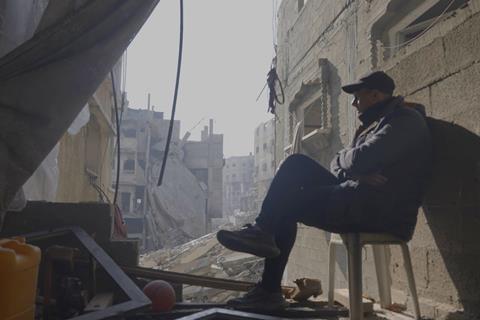
The horrific Israel-Hamas conflict in the Middle East has entered its second year. When accepting the best international feature Oscar at the 2024 ceremony, The Zone Of Interest’s Jonathan Glazer called for an end to the “dehumanisation” of people in the region. Film production there has continued, with entries from Middle Eastern countries down from eight last year to seven.
This year’s Palestinian entry From Ground Zero deals directly with the ongoing conflict. A collection of 22 short films made by filmmakers from Gaza, it includes documentary, animation and drama sections. The anthology was overseen by Palestinian filmmaker and producer Rashid Masharawi, who held a screening of the film outside the grounds of Cannes Film Festival in May in protest at it not being selected. It had a North American premiere at Toronto in September, where it was acquired for distribution by Alana Hadid’s nascent Watermelon Pictures.
Israel is also in this year’s Oscar race with Tom Nesher’s Come Closer, the story of a girl’s spiral into obsession after discovering that her late brother had a secret girlfriend. The Tribeca premiere won four prizes from 12 nominations at the Israeli Film Academy Ophir Awards, with its best film win there securing its Oscar entry. The most recent of Israel’s 10 Oscar nominations in this category came in 2012 with Joseph Cedar’s Footnote.
The Iranian film community has suffered its own struggles this year, with numerous filmmakers either in exile or banned from leaving the country. In September the country’s Farabi Cinema Foundation selected Babak Khajeh Pasha’s In The Arms Of The Tree, a family drama about a crisis affecting a married couple and the idyllic world of their children. Maryam Moghaddam and Behtash Sanaeeha’s Berlinale title My Favourite Cake, which raised the ire of the country’s authorities, did not make the Iranian shortlist.
No title in this year’s race features a name as famous as Iraq’s Baghdad Messi, about a young boy determined not to let losing his leg in a terrorist attack restrict his dream of playing football like his hero Lionel Messi. It is adapted from director Sahim Omar Kalifa’s short of the same name, which was shortlisted for an Oscar in 2014. Messi fandom expanding to the US, where he has played his football for Florida-based Inter Miami since 2023, may help with exposure.
Lebanon recorded successive Oscar nominations in 2018 and 2019 with Ziad Doueiri’s The Insult and Nadine Labaki’s Capernaum. Aiming to go one better is Mira Shaib’s Arzé, a Beirut-set comedy drama about a woman taking her teenage son on a journey across sectarian parts of the city in search of a stolen scooter.
Jordan had submitted Sareen Hairabedian’s documentary My Sweet Land, about an 11-year-old in the Armenia-Azerbaijan conflict, who dreams of becoming a dentist. However Jordan’s Royal Film Commission withdrew the submission in early November, citing “diplomatic pressures” — reportedly from Azerbaijan, with the film giving a sympathetic depiction of Armenians displaced by the conflict. Jordan’s Oscar pinnacle to date came in 2016, with the nomination for Naji Abu Nowar’s Theeb.
Despite a population of over 85 million people, Turkey — bridging Europe and the Middle East — has never received an Oscar nomination. Looking to change that is Life from Zeki Demirkubuz, about a woman who flees her impending marriage, and the fiancé who travels to Istanbul to find her. Miray Daner leads the cast.





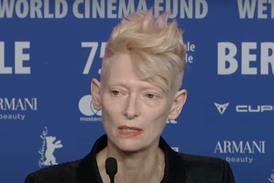

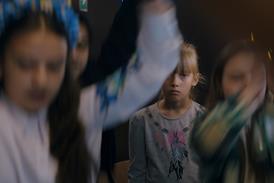








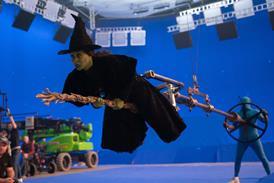
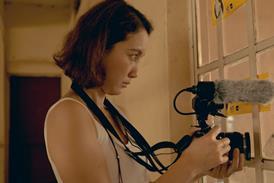







No comments yet